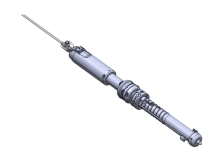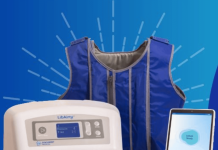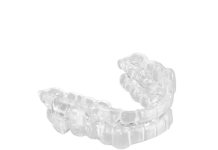JenaValve announced new results from an expanded cohort receiving its Trilogy transcatheter heart valve (THV) system. The ALIGN-AR pivotal trial evaluated Trilogy in high-risk patients with symptomatic, severe aortic regurgitation (AR). The expanded cohort of 500 patients represented the largest prospective study of transcatheter aortic valve replacement (TAVR), JenaValve said.
Related: Osteoboost wins FDA De Novo Pathway approval
In a January report, GlobalData analysts said they expect the FDA to approve JenaValve’s TAVR device for AR by late 2025. TAVR currently serves as an option to treat aortic stenosis (AS). Expanding its indications to include AR could help a previously underserved population, the analysts said. An approval would also widen Edwards’ share in the TAVR market. The company, already a leader with its Sapien valves, agreed to acquire JenaValve as part of a $1.2 billion double M&A swoop alongside Endotronix last July.
JenaValve’s latest analysis on Trilogy included procedural and 30-day safety outcomes from 500 patients. It also featured one-year follow-up data on more than 300 patients, including one from the core ALIGN-AR trial. In this expanded cohort, the composite 30-day primary safety endpoint was 26.2%, with an upper one-sided 97.5% confidence interval of 30.1%, significantly below the prespecified non-inferiority margin of 40.5%. Additionally, one-year mortality was 8.1%, well below the study’s predefined performance goal of 25%.
“We are incredibly pleased to share these ALIGN-AR results,” said John Kilcoyne, CEO of JenaValve. “These expanded data demonstrate consistent performance of the Trilogy System, potentially offering severe aortic regurgitation patients, who are poor surgical candidates, a path to life-saving treatment. We are eagerly anticipating the approval of Trilogy and the opportunity to bring this innovative solution to patients.”




